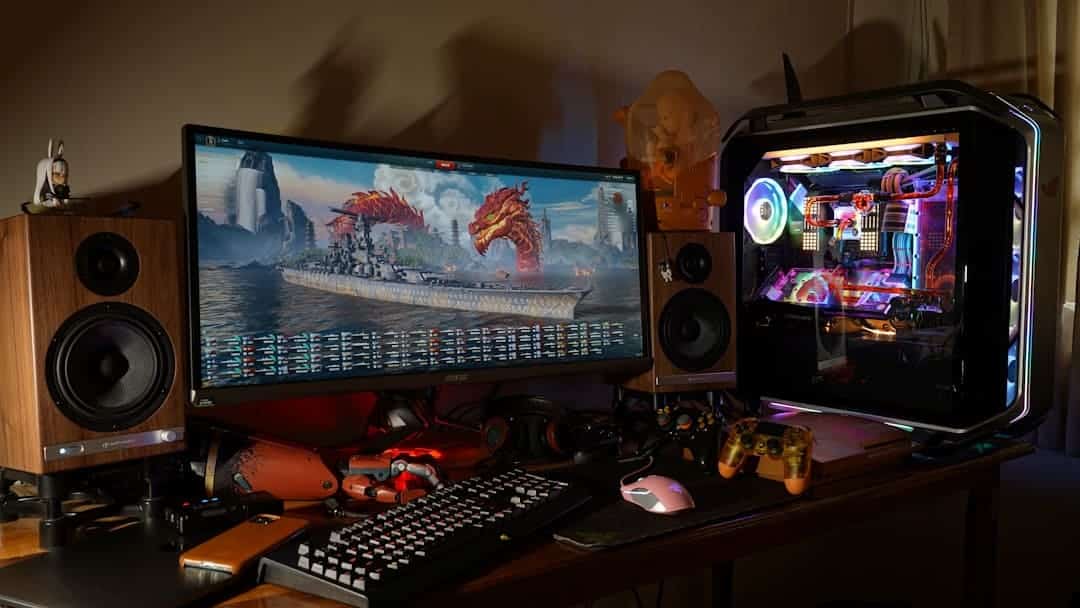The gaming industry has witnessed a significant transformation over the past decade, with cross-platform play emerging as a pivotal trend. This phenomenon allows players on different gaming systems—be it consoles, PCs, or mobile devices—to engage in multiplayer experiences together. The rise of cross-platform play can be attributed to several factors, including advancements in technology, the growing demand for more inclusive gaming experiences, and the desire for a unified gaming community.
As players increasingly seek to connect with friends regardless of their chosen platform, game developers have recognized the necessity of breaking down the barriers that once segregated gaming communities. Historically, the gaming landscape was characterized by a rigid division between platforms. Console manufacturers like Sony, Microsoft, and Nintendo maintained strict control over their ecosystems, often limiting players to their respective networks.
However, as online gaming gained traction, the limitations of this model became apparent. Players expressed frustration over being unable to join friends in multiplayer games simply because they owned different consoles.
Games like “Fortnite,” “Rocket League,” and “Call of Duty: Warzone” have set the standard for cross-platform play, demonstrating its viability and popularity among gamers.
Key Takeaways
- Cross-platform play is becoming increasingly popular in the gaming industry, allowing players to connect and play together across different devices and platforms.
- Barriers between different gaming consoles are being broken down, enabling players to join forces and compete in online multiplayer games regardless of their console of choice.
- Cross-platform play is having a significant impact on online multiplayer games, creating larger player pools and more diverse gaming experiences.
- The implementation of cross-platform play is fostering a more inclusive gaming environment, allowing players with different devices to come together and enjoy games as a unified community.
- Cross-platform play is connecting players across the globe, enabling them to interact and compete with others from different regions and backgrounds.
Breaking Down Barriers Between Different Gaming Consoles
The implementation of cross-platform play has necessitated a reevaluation of the competitive landscape among console manufacturers. Traditionally, companies like Sony and Microsoft have positioned themselves as rivals, each vying for market dominance through exclusive titles and unique features. However, the advent of cross-platform play has encouraged a more collaborative approach.
For instance, Sony’s initial reluctance to embrace cross-platform functionality was met with significant backlash from the gaming community. In response, the company eventually opened its doors to cross-play with titles such as “Fortnite,” signaling a shift in strategy that acknowledges the changing dynamics of player expectations. This shift is not merely a matter of corporate strategy; it reflects a broader cultural change within the gaming community.
Players are increasingly prioritizing social connections over brand loyalty. The ability to play with friends across different platforms has become a key selling point for many games. Developers are now tasked with creating seamless experiences that allow players to interact without the constraints of hardware limitations.
This has led to innovative solutions that enable cross-platform matchmaking, shared progression systems, and synchronized updates across various platforms, fostering a more cohesive gaming experience.
The Impact of Cross-Platform Play on Online Multiplayer Games

Cross-platform play has fundamentally altered the landscape of online multiplayer games, enhancing both player engagement and retention. By allowing gamers from different platforms to compete or cooperate in the same virtual space, developers have expanded their player bases significantly. This increased accessibility not only enriches the gaming experience but also contributes to longer-lasting communities around specific titles.
For example, “Apex Legends” has thrived on its cross-platform capabilities, attracting millions of players who can team up regardless of their device. Moreover, cross-platform play has introduced new dynamics into competitive gaming. In traditional settings, players were often limited by their platform’s capabilities, leading to imbalances in skill levels and matchmaking issues.
With cross-play, developers can create more balanced environments where players can compete on equal footing. This has led to a more vibrant competitive scene, as players can now face off against a diverse range of opponents with varying play styles and strategies. The result is a richer competitive experience that keeps players engaged and invested in their favorite games.
How Cross-Platform Play is Fostering a More Inclusive Gaming Environment
The rise of cross-platform play is not just about technical advancements; it also represents a significant step toward inclusivity within the gaming community. By breaking down the barriers that once separated players based on their chosen platforms, cross-play fosters an environment where everyone can participate and enjoy gaming together. This inclusivity is particularly important for marginalized groups who may have felt alienated by traditional gaming ecosystems.
For instance, cross-platform play allows friends who own different consoles to enjoy games together without feeling pressured to switch platforms or invest in new hardware. This democratization of access encourages diverse groups of players to come together, share experiences, and build friendships that transcend platform boundaries. Additionally, it opens up opportunities for underrepresented voices in gaming to be heard and celebrated within larger communities.
As players from various backgrounds unite over shared interests, the gaming landscape becomes richer and more varied.
The Role of Cross-Platform Play in Connecting Players Across the Globe
In an increasingly interconnected world, cross-platform play serves as a bridge that connects players from different geographical locations and cultural backgrounds. The ability to engage with others globally enhances the social aspect of gaming, allowing individuals to form friendships and collaborate with people they might never have met otherwise. This global connectivity is particularly evident in games that emphasize teamwork and communication, such as “Overwatch” or “Destiny 2,” where players must coordinate strategies and tactics in real-time.
Furthermore, cross-platform play can help break down cultural barriers by exposing players to diverse gaming styles and perspectives. When players from different regions come together in a shared virtual space, they bring their unique experiences and approaches to gameplay. This exchange fosters understanding and appreciation for different cultures within the gaming community.
As players learn from one another and adapt to various play styles, they contribute to a more dynamic and inclusive gaming environment that celebrates diversity.
Challenges and Opportunities for Game Developers in Implementing Cross-Platform Play

While the benefits of cross-platform play are clear, implementing this feature presents several challenges for game developers. One significant hurdle is ensuring compatibility between different platforms, which often have varying technical specifications and performance capabilities. Developers must invest time and resources into creating systems that allow for seamless interaction between consoles, PCs, and mobile devices while maintaining game balance and performance standards.
Additionally, there are concerns regarding security and cheating in cross-platform environments. Different platforms may have varying levels of security measures in place, leading to potential vulnerabilities that could be exploited by malicious players. Developers must address these issues proactively by implementing robust anti-cheat systems and ensuring fair play across all platforms.
Despite these challenges, the opportunities presented by cross-platform play are substantial. By embracing this trend, developers can tap into larger player bases, enhance player engagement, and foster long-term communities around their games.
The Future of Cross-Platform Play and its Potential to Shape the Gaming Industry
Looking ahead, the future of cross-platform play appears promising as more developers recognize its potential to reshape the gaming industry. As technology continues to evolve, we can expect even greater integration between platforms, allowing for more sophisticated gameplay experiences that leverage the strengths of each system. Innovations such as cloud gaming may further enhance cross-platform capabilities by enabling players to access games from any device without being tethered to specific hardware.
Moreover, as consumer demand for cross-play grows, it is likely that more titles will adopt this feature as a standard practice rather than an exception. This shift could lead to a more unified gaming ecosystem where players are less concerned about platform exclusivity and more focused on enjoying their favorite games with friends. The potential for cross-platform play to drive collaboration among developers could also lead to exciting new projects that prioritize community engagement and inclusivity.
The Social and Cultural Benefits of Cross-Platform Play for Gaming Communities
Beyond its technical implications, cross-platform play offers significant social and cultural benefits for gaming communities. By fostering connections between players from diverse backgrounds, it encourages collaboration and camaraderie that transcends traditional boundaries. This sense of community is vital in an era where social interactions are increasingly digital; gaming serves as a platform for individuals to forge meaningful relationships based on shared interests.
Additionally, cross-platform play promotes a culture of acceptance within gaming communities. As players interact with others from different platforms and backgrounds, they develop empathy and understanding for diverse perspectives. This cultural exchange enriches the gaming experience and helps combat toxic behaviors that can sometimes plague online interactions.
By creating an environment where inclusivity is prioritized, cross-platform play contributes to healthier gaming communities that celebrate diversity while fostering positive social interactions among players. In conclusion, the rise of cross-platform play represents a transformative shift in the gaming industry that enhances accessibility, inclusivity, and global connectivity among players. As developers continue to navigate the challenges associated with implementing this feature, the potential benefits for both gamers and the industry as a whole are immense.
The future holds exciting possibilities for cross-platform play as it shapes not only how games are played but also how communities are built within the ever-evolving landscape of digital entertainment.
In a recent article on Enicomp, the game-changing keyword research tool RankAtom was reviewed, highlighting its potential to revolutionize the way content creators approach SEO strategies. This tool could be particularly beneficial for gaming communities looking to expand their reach and connect with a wider audience. By utilizing tools like RankAtom, gamers can optimize their content and increase visibility across platforms, ultimately contributing to the unity of gaming communities worldwide. To learn more about cutting-edge technology and tools like RankAtom, check out Enicomp’s original home for technology news and reviews. Link
FAQs
What is cross-platform play in gaming?
Cross-platform play in gaming refers to the ability for players using different gaming platforms (such as PC, console, and mobile) to play together in the same game, regardless of the device they are using.
Which gaming platforms support cross-platform play?
Many popular gaming platforms now support cross-platform play, including Xbox, PlayStation, Nintendo Switch, PC, and mobile devices.
What are the benefits of cross-platform play for gamers?
Cross-platform play allows gamers to connect and play with friends and other players across different devices, expanding the player base and creating a more inclusive gaming community.
How does cross-platform play unite gaming communities worldwide?
Cross-platform play breaks down barriers between different gaming communities, allowing players from around the world to come together and play games regardless of the device they are using.
Are there any limitations to cross-platform play?
Some games may have limitations on which platforms can play together, and not all games support cross-platform play. Additionally, some games may have different features or performance capabilities across different platforms.

